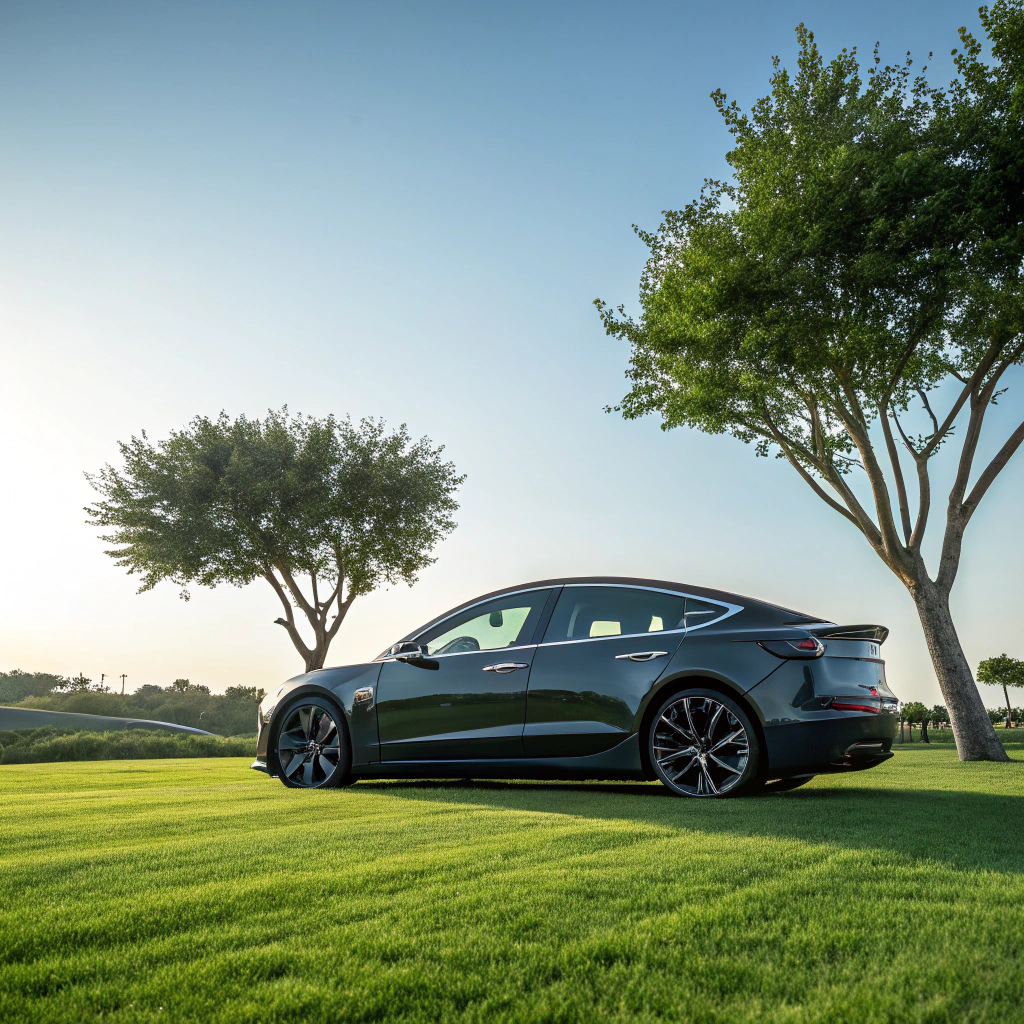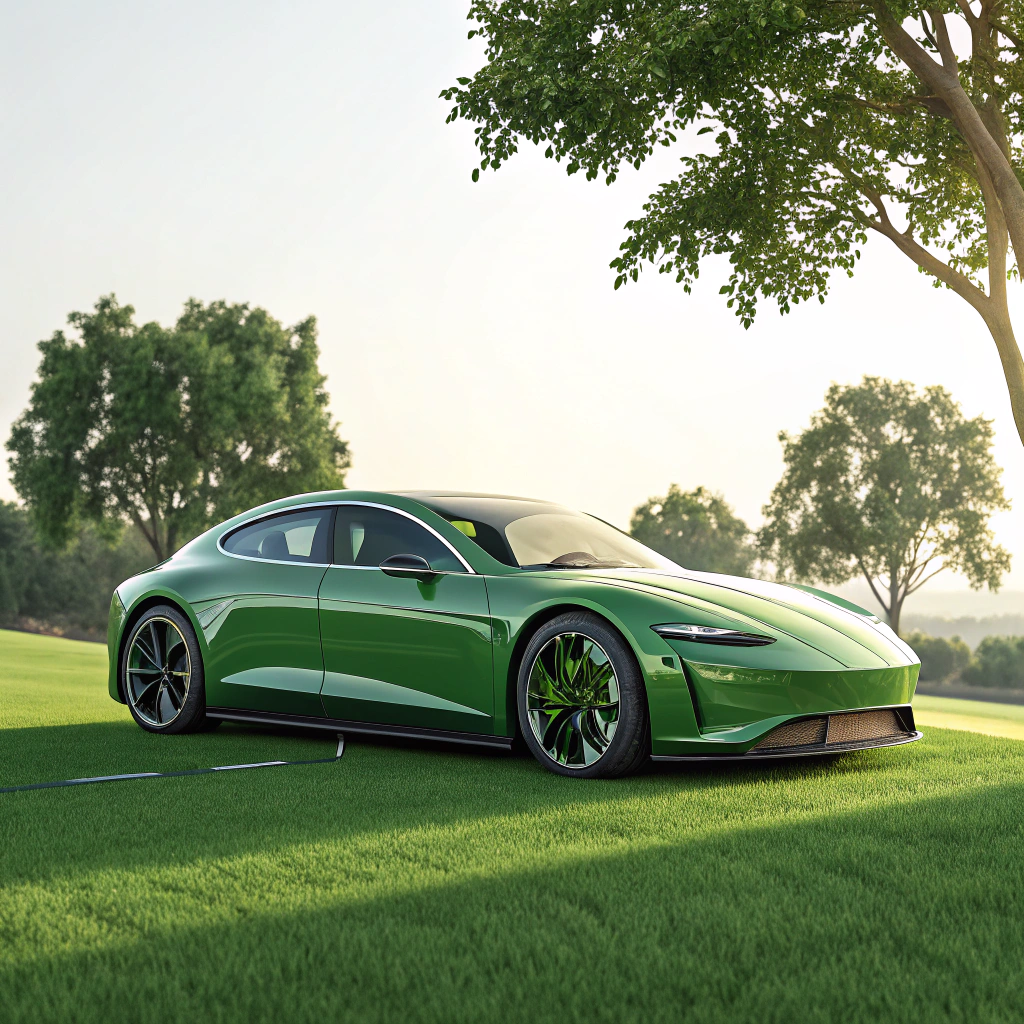Eco cars are changing how Americans drive. They help you save money, use less gas, and reduce pollution. With gas prices rising and climate change getting worse, eco cars are now more popular than ever in the United States.
In this guide, we’ll explain what an eco car is, how it works, and why it might be the right choice for your next vehicle.

What Is an Eco Car?
An eco car is short for “ecological car.” It’s designed to be good for the environment and more efficient than regular cars. These cars use less fuel, or none at all, and create fewer harmful emissions.
Types of Eco Cars:
- Hybrid Cars – Use both a gas engine and an electric motor.
- Plug-in Hybrids – Can be charged at home and run longer on electricity.
- Electric Vehicles (EVs) – Run only on electricity and produce zero emissions.
Why More Americans Are Driving Eco Cars
Many people in the U.S. are choosing eco cars for good reasons. Here’s why:
1. Save Money on Gas
Gas prices in the U.S. are unpredictable. Eco cars, especially EVs, help you avoid the pump altogether or cut your fuel costs in half. Charging your car at home is much cheaper than filling up with gas.
2. Lower Maintenance Costs
Electric cars have fewer moving parts than gas-powered vehicles. That means less maintenance—no oil changes, fewer brake repairs, and no engine problems.
3. Better for the Environment
Eco cars help reduce carbon emissions and air pollution. According to the U.S. Department of Energy, EVs produce fewer greenhouse gases than gas-powered cars, even when electricity comes from fossil fuels.
4. Tax Credits and Incentives
The U.S. government offers federal tax credits up to $7,500 for some eco cars. Many states also offer rebates and other benefits like access to carpool lanes.

Top Eco Cars to Consider in 2025
Here are some popular eco cars you’ll find on U.S. roads today:
Tesla Model 3
- Type: Electric
- Range: Up to 358 miles
- Why it’s great: Quick, sleek, and packed with tech. A top choice among EV lovers.
Toyota Prius
- Type: Hybrid
- MPG: Around 56 MPG
- Why it’s great: Reliable, affordable, and the original hybrid trendsetter.
Chevrolet Bolt EV
- Type: Electric
- Range: About 259 miles
- Why it’s great: Budget-friendly EV with strong range and performance.
Ford Escape Plug-In Hybrid
- Type: Plug-in Hybrid
- Electric Range: Up to 37 miles
- Why it’s great: Perfect for families who want eco performance and SUV space.
How Eco Cars Help the Planet
When you drive an eco car, you’re making a smart move for the planet. Here’s how:
- Fewer Emissions – Electric cars produce zero tailpipe emissions.
- Better Air Quality – Lower pollution levels help reduce asthma and other lung problems.
- Less Noise – EVs are quiet and reduce noise pollution in busy cities.
Eco Car vs. Regular Car: Cost Comparison
| Category | Regular Car | Eco Car (EV/Hybrid) |
|---|---|---|
| Gas (monthly) | $150–$250 | $30–$80 (or $0 for EVs) |
| Oil Changes | Every 3,000–5,000 mi | Not needed (for EVs) |
| Brake Repairs | Frequent | Less (regenerative braking) |
| Tax Incentives | Rare | Up to $7,500 available |
How to Maximize Your Eco Car’s Efficiency
Even eco cars work better with the right habits. Here are some tips:
Drive in Eco Mode
Most eco cars have a built-in “Eco Mode.” This adjusts power use to save energy and boost fuel efficiency.
Charge During Off-Peak Hours
Electric companies in the U.S. often offer lower rates at night. Charging your EV during these times can save money and ease demand on the grid.
Keep Tires Inflated
Proper tire pressure improves mileage and performance. Check your tires once a month.
Reduce Extra Weight
Avoid keeping heavy items in your trunk. The lighter your car, the less energy it uses.
One More Reason to Switch: Cleaner Future
Choosing an eco car doesn’t just help your wallet. It also helps create a cleaner future for your kids and the planet. As technology improves, these cars are becoming more affordable, reliable, and powerful than ever before.
External Resource
Want to know more about the long-term benefits of driving green cars? Check out this helpful article on GreenCars for deeper insights.
Frequently Asked Questions (FAQ)
What is the lifespan of an eco car battery?
Most EV batteries last 8–12 years, depending on the model and usage. Many brands offer long-term warranties.
Do eco cars work in cold weather?
Yes, but battery performance can drop in very cold conditions. Preheating your EV while it’s plugged in can help.
Are eco cars safe?
Absolutely. Eco cars must pass the same safety tests as gas-powered cars. Many also include advanced safety features.
Can I charge my eco car at home?
Yes! You can plug in at home using a standard outlet or install a Level 2 charger for faster charging.
Are eco cars more expensive to insure?
Not always. Insurance costs vary by car model, but some companies offer discounts for eco-friendly cars.
Conclusion
Eco cars are not just a trend—they’re the future. Whether you’re looking to save money, help the planet, or just enjoy a smoother ride, there’s an eco car out there for you.
Now is the perfect time to make the switch and drive green.




















